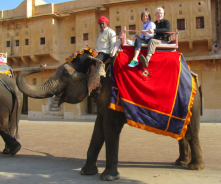Section 1: Understanding International Trading
1.1 What is International Trading?
International trading refers to the exchange of goods and services between countries. It is driven by the pursuit of comparative advantages, where countries produce and export goods or services in which they have a competitive edge, while importing those they do not.
1.2 The Importance of International Trade
International trade is essential for several reasons:Access to a wider variety of goods and services.Economic growth through increased market opportunities.
Promotion of global cooperation and diplomacy.
Enhanced cultural exchange and understanding.
Section 2: Starting an International Trading Business
2.1 Market Research
Before diving into international trade, conduct thorough market research. This involves understanding the demand for your product or service in target markets, identifying competitors, and gauging market trends.
2.2 Legal Compliance
Ensure compliance with both domestic and international trade laws and regulations. Familiarize yourself with import/export licenses, trade agreements, and customs procedures.
2.3 Finding Partners and Suppliers
Identifying reliable trading partners or suppliers is crucial. Attend trade shows, join industry associations, explore online marketplaces, and conduct due diligence when evaluating potential partners.
2.4 Financing Your Venture
Securing adequate financing is vital for international trade. Explore various funding options, including loans, grants, venture capital, or trade finance solutions.
Section 3: Managing Risks in International Trading
3.1 Understanding Risks
International trade comes with inherent risks such as currency fluctuations, political instability, shipping delays, and regulatory compliance issues. Identifying and assessing these risks is the first step in managing them effectively.
3.2 Risk Management Strategies
Mitigate risks by using strategies like:Currency hedging through financial instruments.
Diversification of markets and suppliers.
Political risk insurance.
Developing contingency plans for potential disruptions.
Section 4: International Trade Regulations and Documentation
4.1 Customs and Documentation
Understanding customs procedures and documentation is essential. Learn about invoices, bills of lading, certificates of origin, and other required paperwork.
4.2 Incoterms
Incoterms (International Commercial Terms) are standardized trade terms that define responsibilities in international transactions. Familiarize yourself with common Incoterms to clarify obligations between buyers and sellers.
Section 5: Currency Exchange and International Trade
5.1 Currency Exchange Risks
Fluctuations in exchange rates can impact trade profitability. Explore strategies to manage currency exchange rate risks, such as forward contracts or pricing products in the currency of your primary market.
Section 6: Government Incentives and Support
6.1 Government Initiatives
Many governments offer incentives to encourage international trade, including export subsidies, grants, tax benefits, and trade promotion services. Research available programs to maximize your advantages.
Section 7: Staying Informed and Adapting
7.1 Staying Informed
Stay up-to-date on international trade trends, regulations, and market developments. Subscribe to trade publications, attend seminars, and monitor government trade websites.
7.2 Adapting to Change
International trade is dynamic, and market conditions can change rapidly. Adaptability and a proactive approach are keys to long-term success.
Conclusion
International trade offers abundant opportunities but requires a well-informed and strategic approach. By understanding the fundamentals, complying with regulations, managing risks, and staying informed, individuals and businesses can thrive in the global marketplace. Whether you're a seasoned trader or just beginning your international trade journey, this comprehensive guide should serve as a valuable resource to navigate the intricate world of international trade successfully.
Frequently Asked Questions (FAQs) - International Trading
1. What is international trading, and why is it important?
International trading involves the exchange of goods and services between countries. It's essential because it allows countries to access products and resources they might not have domestically and promotes economic growth and global cooperation.
2. What is an import, and what is an export in international trading?
An import refers to the purchase of goods or services from foreign countries and bringing them into your own country. An export, on the other hand, is the sale of goods or services produced domestically to foreign markets.
3. How do I start an international trading business?
Starting an international trading business involves several steps, including market research, legal compliance, finding suppliers or buyers, securing financing, and understanding international trade regulations. It's advisable to seek guidance from trade experts or business consultants.
4. What are the risks associated with international trading?
Risks in international trading can include currency fluctuations, political instability, customs and tariff changes, shipping delays, and regulatory compliance issues. Mitigating these risks often involves thorough research, risk assessment, and risk management strategies.
5. Do I need to understand international trade regulations and documentation?
Yes, a good understanding of international trade regulations and documentation is crucial. It involves knowing about customs procedures, import/export licenses, trade agreements, and proper documentation like invoices, bills of lading, and certificates of origin.
6. How can I find reliable international trading partners or suppliers?
Finding trustworthy trading partners often involves attending trade shows, joining industry associations, using online marketplaces, and seeking recommendations from other businesses. Due diligence and background checks are essential when evaluating potential partners.
7. What is an Incoterm, and how does it affect international trade?
Incoterms (International Commercial Terms) are standardized trade terms that define the responsibilities of buyers and sellers in international transactions. They specify who is responsible for transportation, insurance, and customs clearance, among other things.
8. How can I deal with currency exchange rate fluctuations in international trading?
To manage currency exchange rate risks, businesses can use financial instruments like forward contracts or options to lock in exchange rates. Alternatively, they can price their products in the currency of their primary market to reduce exposure to currency fluctuations.
9. Are there government incentives for businesses engaged in international trade?
Many governments offer incentives to promote international trade, such as export subsidies, grants, or tax benefits. It's advisable to check with your local trade promotion agencies or government departments for available programs.
10. How can I stay updated on international trade trends and regulations?
- To stay informed about international trade developments, you can subscribe to trade publications, attend trade seminars and workshops, join industry associations, and regularly monitor government trade websites and international news sources.


